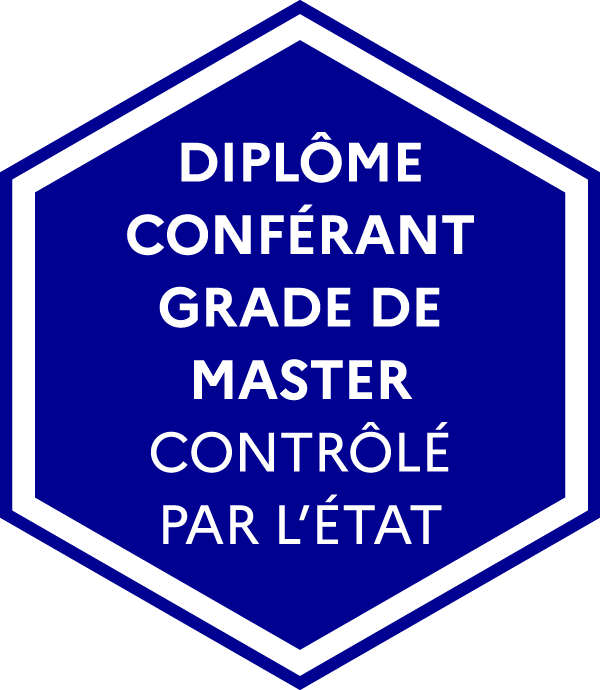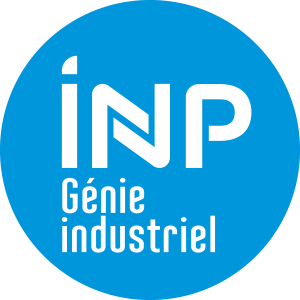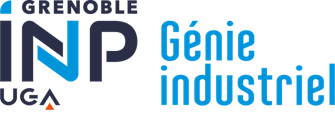Number of hours
- Lectures 9.0
- Projects -
- Tutorials 6.0
- Internship -
- Laboratory works -
- Written tests 1.0
ECTS
ECTS 1.5
Goal(s)
The engineer has to face two challenges:
- to integrate into an organization by project, to adopt good attitudes, to participate to the decisions, to take responsibility for a project
- to ensure that the products and services will meet uses, the needs or desires of potential customers.
The engineer needs tools to understand how to behave in project organizations and to understand organizational constraints and informal rules.
He needs tools to understand how customers use technological innovations, and how technical objects transform social life.
Content(s)
Content
The course is divided into two parts, with two different issues
1. The organization by project (Sociology of organizations), 18 hours
This part will address the sociological analysis of the organization by project
How decisions are made in the project (choice of functionality, choice of technical solution...)? What are the usual failures of the decision-making process? How to organize to make better decisions? How to increase the reactivity and avoid irreversible decisions?
Project devices have a managerial dimension. What are the drivers for motivation in a project? How to maintain the mobilization of stakeholders throughout the project? Why projects always face crises?
The project is an area of confrontation between occupational groups (different technical domains, engineers, technicians, workers) : how their knowledge and their values interact in the project? How better defend yours goal in the negotiations with other occupational groups?
The project mobilizes often different companies: how to work on the long term with partners? How to go beyond the conflict of economic interests?
2. Sociology of technics and consumption practices (18 hours)
This teaching is designed to familiarize the students with the reasoning and the tools of the sociology of technics and the sociology of consumption.
How does technology change our society? How do changes in society create new needs that encourage technical innovations?
How to understand consumers, their needs, their desires, their identity issues. How innovators creating new needs? How the products involved our identity?
How can products be integrated in practices (recreation, daily life and work...)? How can we better understand their uses?
There are no prerequisite. Bases in Sociology of work and organizations (first year course) can facilitate the acquisition of reasoning and concepts.
Continuous control (40%) based on collective projects
Final exam (60%): exercise, case.
The course exists in the following branches:
- Curriculum - Engineer student Master SCM - Semester 7
- Curriculum - Engineer student Master PD - Semester 7
Course ID : 4GMC15F1
Course language(s): 
You can find this course among all other courses.
Reverdy T. (2021), Antimanuel de management de projet, comment les chefs de projet composent avec les incertitudes, Dunod
Asquin, Alain, Gilles Garel, et Thierry Picq. « Quand les individus et les collectifs sociaux sont mis en danger par le travail en projet ». In Gérer et Comprendre. Annales des Mines, 43?54, 2007.
Boltanski, Luc, et Eve Chiapello. Le nouvel esprit du capitalisme. Paris: Gallimard, 1999.
Brooks Jr, Frederick P. The Mythical Man-Month: Essays on Software Engineering, Anniversary Edition, 2/E. Pearson Education India, 1995.
Garel, Gilles. « Pour une histoire de la gestion de projet ». Gérer et comprendre 74, no 1 (2003): 77?89.
Jeantet, Alain. « Les objets intermédiaires dans la conception. Eléments pour une sociologie des processus de conception ». Sociologie du travail, 1998, 291?316.
Latour, Bruno. Aramis ou l’amour des techniques, Textes à l’appui. Anthropologie des sciences et des techniques, La Découverte, 1992.
Midler, Christophe, Bernard Jullien, et Yannick Lung. Innover à l’envers: Repenser la stratégie et la conception dans un monde frugal. Dunod, 2017.
Moisdon, Jean-Claude, et Benoît Weil. « L’invention d’une voiture: un exercice de relations sociales ». Gérer et comprendre 28 (1992): 30?41.
Reverdy, Thomas, et Markku Lehtonen. « The Lyon–Turin high-speed railway project and the escalation of commitment ». In Socioeconomic Evaluation of Megaprojects, 80?100. Routledge, 2016.
Vaughan, Diane. The Challenger launch decision: Risky technology, culture, and deviance at NASA. University of Chicago Press, 1996.
French State controlled diploma conferring a Master's degree

Common Core presentation
Programme courses S5
Programme courses S6
Supply Chain Management
Programme presentation
Programme courses S7
Programme courses S8
Programme courses S9
Programme courses S10
Product Design
Programme presentation
Programme courses S7
Programme courses S8
Programme courses S9
Programme courses S10
Contacts
Academic staff
- Head of studies:
Pierre Lemaire - Head of 1st Year Program:
Abdourahim Sylla - Head of Supply Chain Management Program:
Irène Gannaz - Head of Product design Program:
Yann Ledoux
Registrar's office
- Head of Registrar's office:
genie-industriel.scolarite@grenoble-inp.fr - Secretary's office 1st Year:
Valérie Demicheli - Secretary's office 2nd Year:
Sylvie Malandrino - Secretary's office 3rd Year:
Vincente Odier - International relations department:
Nadia Dehemchi



